JOZEF PILSUDSKI
FOUNDING FATHER OF MODERN POLAND

Joshua D. Zimmerman

CAMBRIDGE, MASSACHUSETTS & LONDON, ENGLAND 2022
Copyright 2022 by the President and Fellows of Harvard College
All rights reserved
Jacket photograph: Jozef Pilsudski as head of the Provisional State Councils military commission. Warsaw, spring 1917. From the collection of the Polish Museum of America, Chicago.
Jacket design: Lisa Roberts
978-0-674-98427-1 (cloth)
978-0-674-27585-0 (EPUB)
978-0-674-27584-3 (PDF)
The Library of Congress has cataloged the printed edition as follows:
Names: Zimmerman, Joshua D., author.
Title: Jozef Pilsudski : founding father of modern Poland / Joshua D Zimmerman.
Description: Cambridge, Massachusetts : Harvard University Press, 2022. | Includes bibliographical references and index.
Identifiers: LCCN 2021047231
Subjects: LCSH: Pisudski, Jzef, 18671935. | Heads of statePolandBiography. | PolandHistory18641918. | PolandHistory19181945.
Classification: LCC DK4420.P5 Z56 2022 | DDC 943.804092 [B]dc23/eng/20220105
LC record available at https://lccn.loc.gov/2021047231
For my father, Norman A. Zimmerman, who taught me how to think historically, and, by example, the value of respect and kindness for others
Contents
CKNCentral National Committee (Centralny Komitet Narodowy), established December 1915, WarsawCKRCentral Workers Committee of the Polish Socialist Party (Centralny Komitet Robotniczy PPS), established 1894KNPPolish National Committee (Komitet Narodowy Polski), Warsaw (19141915), Petrograd (19151917), Lausanne and Paris (19171919)KPPPolish Communist Party (
Komunistyczna Partia Polski), established December 1918LSDPLithuanian Social Democratic Party, established 1896 in VilnaMKRLocal Workers Committees of the PPS (Miejscowe Komitety Robotnicze)NKNSupreme National Committee (Naczelny Komitet Narodowy), established August 1914 in Krakw, dissolving itself in October 1917ONRNational-Radical Camp (Obz Narodowo-Radykalny), 1934, 19371939OUNOrganization of Ukrainian Nationalists (founded in 1929)PONPolish National Organization (Polska Organizacja Narodowa), established September 1914POWPolish Military Organization (Polska Wojskowa Organizacja), established October 1914PPSPolish Socialist Party (Polska Partia Socjalistyczna), established 1892PPS LeftLeft wing of the PPS, established 1906PPS RightRight wing of the PPS, under Pilsudski, established 1906PPSDPolish Social Democratic Party of GaliciaPSL-PiastPolish Peasant Party (Polskie Stronnictwo Ludowe Piast)SDKPSocial Democracy of the Kingdom of Poland (18931901)SDKPiLSocial Democracy of the Kingdom of Poland and Lithuania (19011918)SPDGerman Social Democratic Party (Die Sozialdemokratische Partei Deutschlands)TRSProvisional Council of State (Tymczasowa Rada Stanu), December 1916September 1917ZWCUnion of Active Struggle (Zwizek Walki Czynnej), 19081914ZZSPUnion of Polish Socialists Abroad, London (Zwizek Zagraniczny Socjalistw Polskich), 18921901
Polish diacritics have been preserved throughout, with the sole exception of the subject of the book, whose name in Polish, Jzef Pisudski, is rendered Jozef Pilsudski, for the purpose of readability. I use the common English spelling for Vilnarather than Vilniusdue to the books pre-1939 chronology.
The following pronunciation guide is provided to help readers sound out Polish terms, names, and places. Note that Polish words have fixed stress on the penultimate syllable.
aa as in father
nasalized a
cts
ch
czch
nasalized e
iee as in meet
jy as in yellow
n as in onion
oo as in go
oo as in boot
rzzh
sh
szsh
uoo as in boot
wv
yi as in it
zh
zh
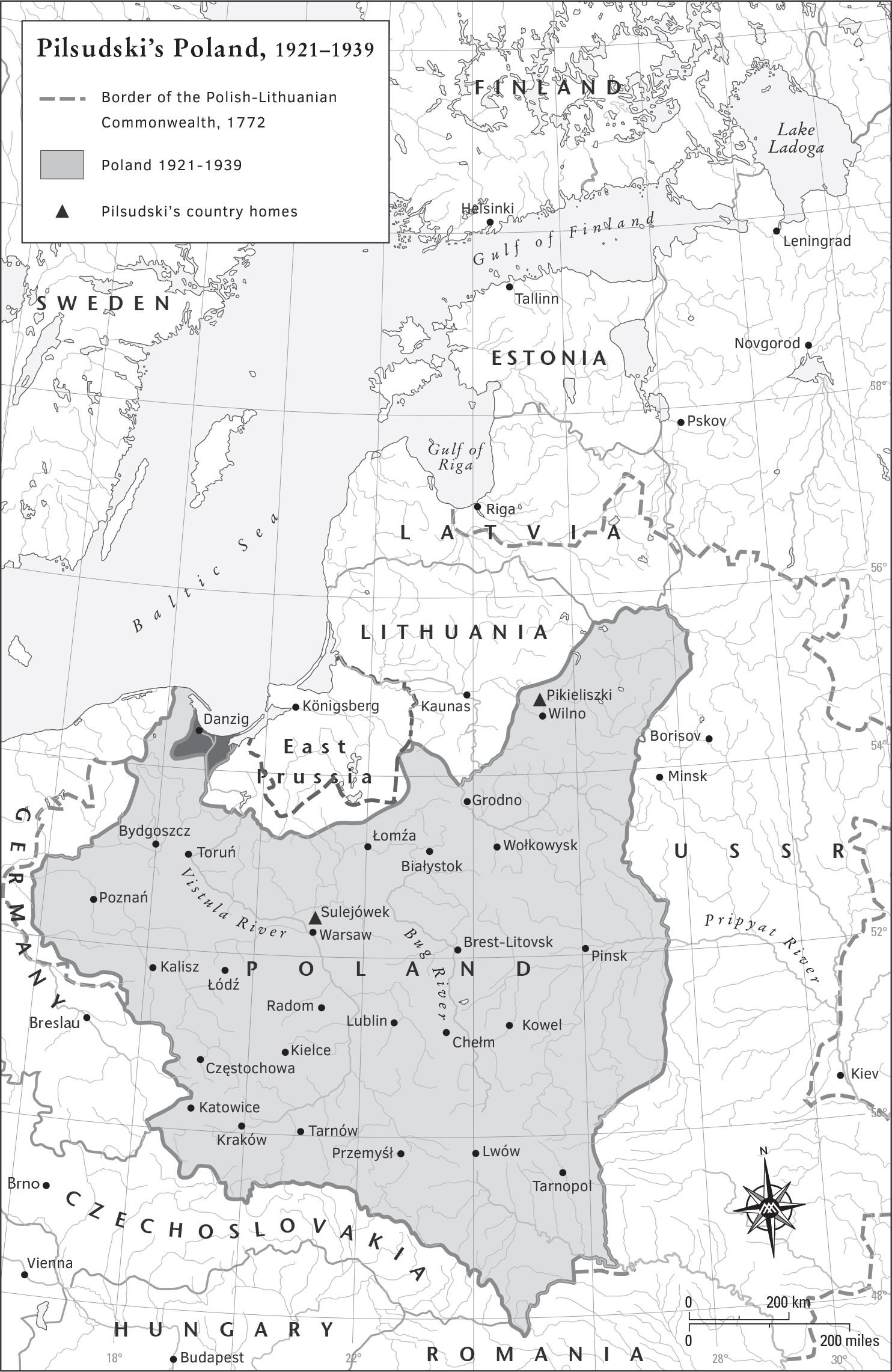
Pilsudski saw Poland as the motherland of many nations, a commonwealth of many cultures; he wanted it to be a state in which not only Poles but also Lithuanians, Ukrainians, and Jews could live in solidarity. He was formed by the special climate of the Vilna province, the common motherland of peoples from different nations, cultures, and religions.
ADAM MICHNIK
Pilsudski believed that he was able to shape the course of history, that Polands destiny was dependent on his will and that, like other greats from the past, he should dominate over all others.
ANDRZEJ GARLICKI
 When Poland emerged from communist rule in 1989, observers noted that the countrys population made a great rush to the past. It seems sometimes that Poland is trying to take a great leap backward, observed Eva Hoffman in 1993. Theres a strengthening cult of Marshal Pilsudski. Hoffmans description of a cult of Marshal Pilsudskireferring to Jozef Pilsudski, the dominant figure in Polish political life before World War IIaptly foreshadowed what was to come. The communist governments attempt to erase Pilsudskis memory during the Cold War was giving way to a veritable explosion of interest in him. The result was a dramatic spike in scholarly and popular publications, museum exhibitions, academic conferences, government declarations, and the renaming of streets and parks after him, as well as in the erection of Pilsudski monuments that today dot Polands urban landscape.
When Poland emerged from communist rule in 1989, observers noted that the countrys population made a great rush to the past. It seems sometimes that Poland is trying to take a great leap backward, observed Eva Hoffman in 1993. Theres a strengthening cult of Marshal Pilsudski. Hoffmans description of a cult of Marshal Pilsudskireferring to Jozef Pilsudski, the dominant figure in Polish political life before World War IIaptly foreshadowed what was to come. The communist governments attempt to erase Pilsudskis memory during the Cold War was giving way to a veritable explosion of interest in him. The result was a dramatic spike in scholarly and popular publications, museum exhibitions, academic conferences, government declarations, and the renaming of streets and parks after him, as well as in the erection of Pilsudski monuments that today dot Polands urban landscape.
The public revival of Pilsudskis memory began immediately after the fall of communism. In 1990 the largest square in Warsaw, located in the city center, was renamed Pilsudski Square. In May 1995, on the sixtieth anniversary of Pilsudskis death, the Polish parliament declared, Jozef Pilsudski will remain in the memory of our nation as the founder of independence and as the victorious leader who fended off a foreign assault that threatened the whole of Europe and its civilization. Jozef Pilsudski served his country well, and entered our history forever.
Following the government declaration restoring Pilsudskis place in national memory, city councils around the country erected monuments to the revered figure. In 1993 a Pilsudski monument was erected in Katowice. In August 1995 the city of Warsaw unveiled the Jozef Pilsudski Monument next to Pilsudski Square in a ceremony attended by President Lech Wasa; Warsaw mayor Marcin wicicki; and Pilsudskis daughter, seventy-five-year-old Jadwiga Pisudska, as well as his granddaughter and her husband, Joanna and Janusz Onyszkiewicz. Other cities followed suit, with Pilsudski monuments erected in Toru (2000), Lublin (2001), Gdask (2006), Krakw (2008), Biaystok (2008), Sulejwek (2010), and abroad, in Brussels (2018) and Budapest (2018).
Public interest surged again in May 2015 on the eightieth anniversary of Pilsudskis death, as large posters of the familiar figure were hung all over the capital city. The countrys second-largest weekly magazine devoted an entire issue to Pilsudski, with essays from leading historians, photographs, artistic portraits, and excerpts of his writings. Whats more, the countrys leading daily included two free photo albums in its weekend edition marking the commemorations. National interest in Pilsudski culminated in the much-anticipated opening of the Jozef Pilsudski Museum in Sulejwek, outside of Warsaw, on August 16, 2020, marking the one-hundredth anniversary of the Battle of Warsaw.



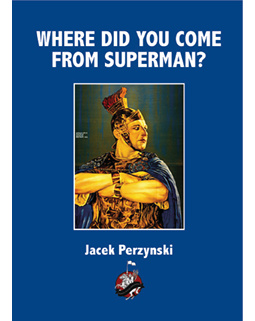
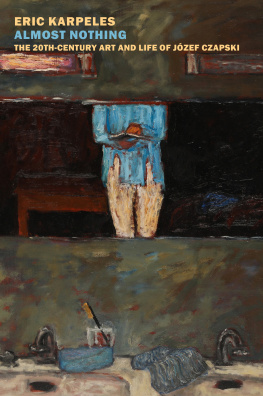
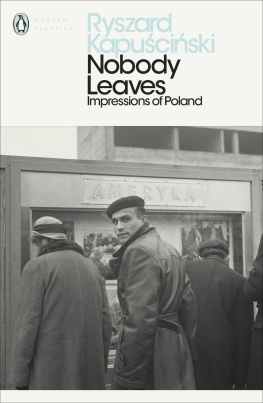
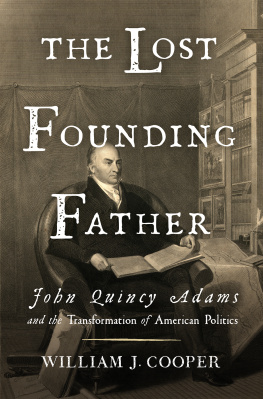
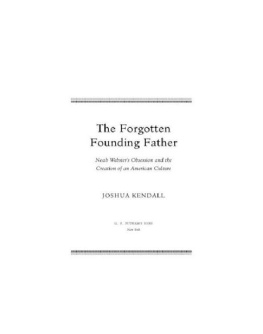
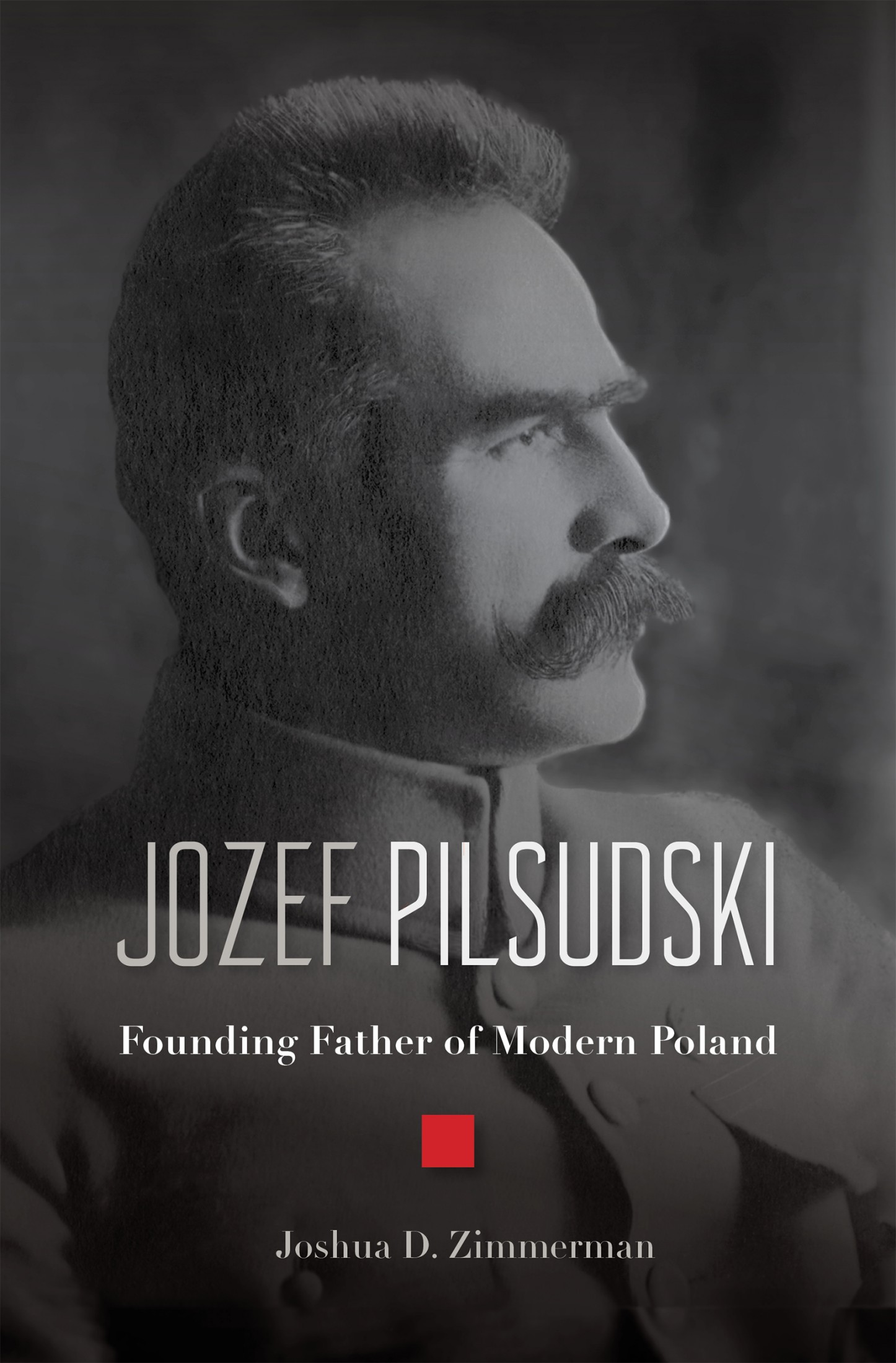



 When Poland emerged from communist rule in 1989, observers noted that the countrys population made a great rush to the past. It seems sometimes that Poland is trying to take a great leap backward, observed Eva Hoffman in 1993. Theres a strengthening cult of Marshal Pilsudski. Hoffmans description of a cult of Marshal Pilsudskireferring to Jozef Pilsudski, the dominant figure in Polish political life before World War IIaptly foreshadowed what was to come. The communist governments attempt to erase Pilsudskis memory during the Cold War was giving way to a veritable explosion of interest in him. The result was a dramatic spike in scholarly and popular publications, museum exhibitions, academic conferences, government declarations, and the renaming of streets and parks after him, as well as in the erection of Pilsudski monuments that today dot Polands urban landscape.
When Poland emerged from communist rule in 1989, observers noted that the countrys population made a great rush to the past. It seems sometimes that Poland is trying to take a great leap backward, observed Eva Hoffman in 1993. Theres a strengthening cult of Marshal Pilsudski. Hoffmans description of a cult of Marshal Pilsudskireferring to Jozef Pilsudski, the dominant figure in Polish political life before World War IIaptly foreshadowed what was to come. The communist governments attempt to erase Pilsudskis memory during the Cold War was giving way to a veritable explosion of interest in him. The result was a dramatic spike in scholarly and popular publications, museum exhibitions, academic conferences, government declarations, and the renaming of streets and parks after him, as well as in the erection of Pilsudski monuments that today dot Polands urban landscape.